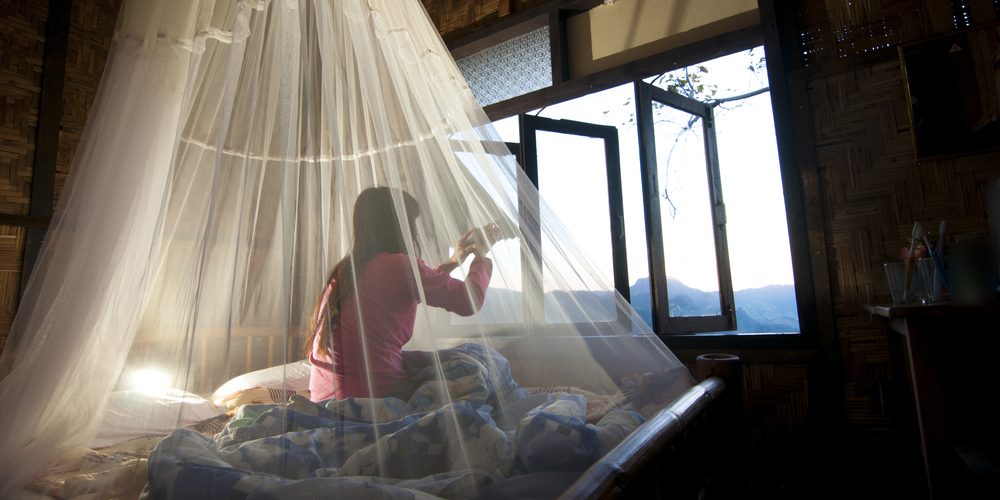The Facts so Far
Dengue affects 390 Million people worldwide every year. The debilitating disease is vector-borne. It spreads from the bite of the infected female Aedes Aegypti mosquito. WHO recommends Dengue prevention and control measures that need to be actively executed on a commercial, community, and individual level. Read on to know more on how to prevent the spread of Dengue and most other vector-borne diseases.
In recent decades, the global instances of Dengue have increased significantly. About 129 countries are high-risk regions for this detrimental disease, but Asia bears the brunt with a 70% higher chance of infection. One study indicates that there are about 390 Million dengue virus infections annually. The COVID-19 pandemic has added to the stress of controlling the dengue infection spread. WHO is emphasising the importance of the prevention of vector-borne, and other arboviral diseases like malaria, common flu, etc. in this period.
The dengue virus is transmitted to humans from the bite of the infected female mosquitoes from the Aedes family. The Aedes Aegypti mosquito is the primary vector of Dengue. It is a daytime feeder which feeds during the early morning and in the evening before sunset. The female also lays eggs that are viable for several months and hatch when they come in contact with water.
Prevention and Control
Mosquito breeding sites are major determinants in how much and how far the infection spreads. Humans living in proximity to non-flowing freshwater bodies are at a significantly higher risk of Malaria and Dengue infection.
There are several ways in which you can contribute to preventing or limiting the spread of infection, both at the personal and community level.
Preventing Mosquito Breeding
The first step is to control the breeding of mosquitoes by restricting their access to viable breeding sites.
Ensure solid and liquid wastes are disposed of properly.
Eliminate any objects in the immediate environment where rainwater or other freshwater collects.
Keep domestic water containers like vessels and tanks covered. Clean them every week.
Cover wells and sumps with cement covers or at least mesh covers to prevent mosquitoes from laying eggs in the water.
Apply insecticides or other cleaning agents to water storage facilities.
Taking Personal Safety Measures to Prevent Mosquito Bites
Affix window screens and nets to prevent mosquito entry into the house.
Use mosquito repellent vaporisers, coils, both inside and outside the home.
Apply mosquito repellent creams or sprays that keep you safe from getting bitten.
Wear long-sleeved and full-length clothes that minimise skin exposure.
Keeps doors and windows closed in the late evenings to stop them from entering your home.
Community Prevention Measures
Create awareness about Dengue and other mosquito-borne diseases in the community you reside in.
Mobilise resources in advance of the monsoon season, and bring prevention measures in place with community engagement.
Spray common areas and areas with dense vegetation with insecticide on a regular and emergency basis in coordination with local bodies.
Conduct active surveillance of mosquito population and breeding to infer the effectiveness of control measures.
Apart from all these, there is one more lesser-known prevention method. If you are already infected with Dengue, ensure that you don’t get bitten by mosquitoes further. Non-infected mosquitoes can get infected by biting infected people. Once infected, the mosquito is capable of transmitting the virus for the entirety of its life. This propagates the spread of the disease through the immediate community of the dengue-affected individual. We must control this particular point of infection.
Seek Expert Guidance
The World Health Organisation has a set of control procedures to follow for a Dengue outbreak. WHO collaborates with a lot of international researchers to strategize on global efforts to prevent Dengue. The focus is on sustainable and locally adaptable vector control interventions.
WHO supports countries in confirmation of outbreaks, and provides technical guidance for effective management. It aids them in improving their reporting system and enables data-driven mitigation measures. It provides training on clinical management and vector control at the grassroots level. It helps countries adopt the Global Vector Control Response which is a long-term program from 2017-2030 to eradicate Vector-borne diseases.
Trivitron is a leading Healthcare Technology company of Indian origin with a global presence. We promote cost-effective medical tech, products, and services. Today we spearhead innovation in the fields of Newborn screening, in-vitro diagnostics, imaging and radiology, critical care, and operating room solutions. Our website hosts a lot of resources on healthcare management that is useful to the community and our peers.
Read our blog about Protect Yourself Against Dengue

